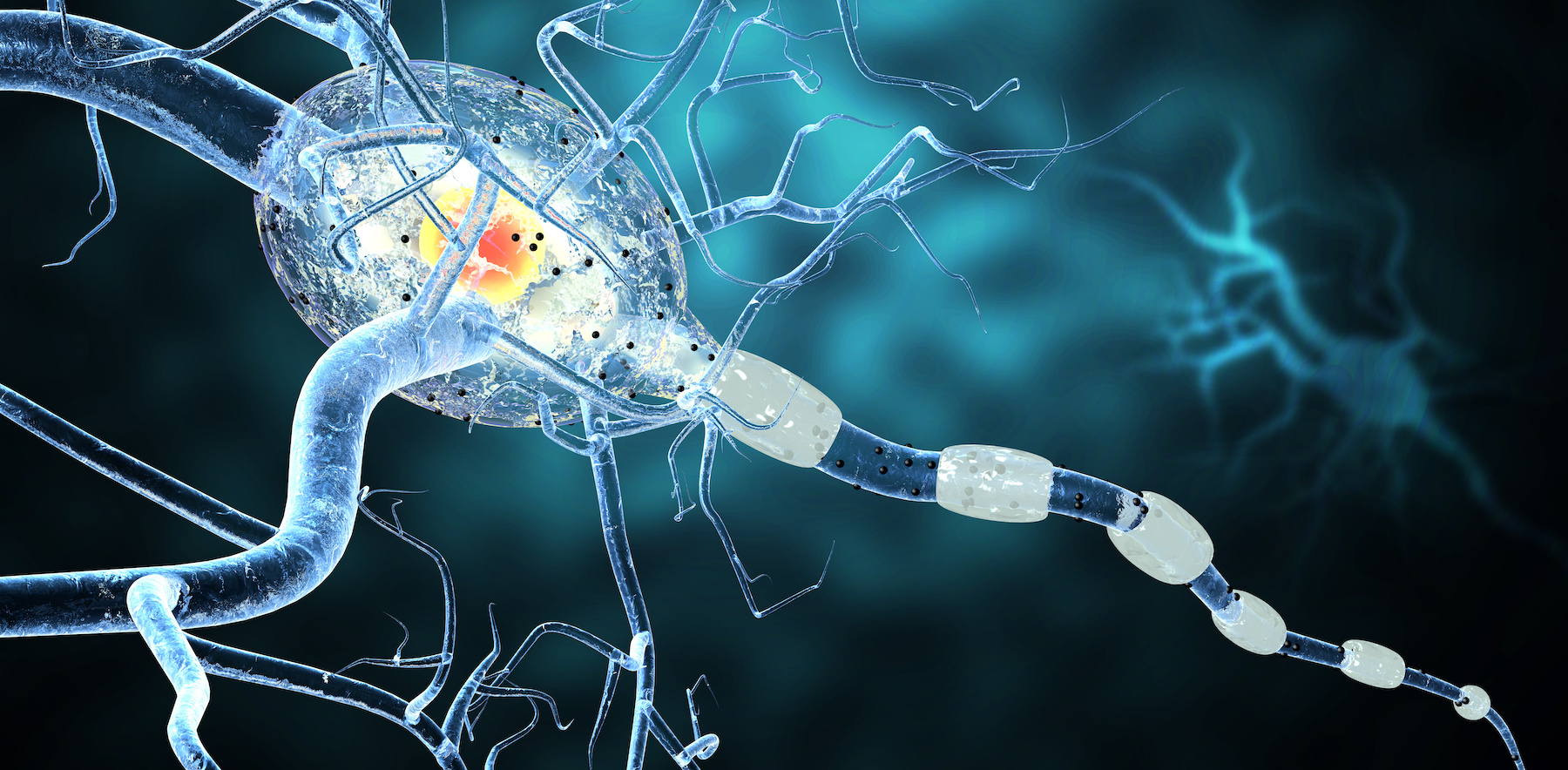

Find out About 2 Common Autoimmune Diseases of the Gut
How Inflammatory Bowel Disease Affects the Digestive System
Stomach pain. Diarrhea. Fatigue. Weight loss.
Much worse: the fear of suddenly needing the toilet holding you back from socializing. Or the abdominal pain that means you have to seclude away from your loved ones.
These are all concerns if you have inflammatory bowel disease.
Inflammatory bowel disease (IBD) is an umbrella term that describes both Crohn’s disease and ulcerative colitis – autoimmune diseases of the gut. But what causes these diseases, and how are they diagnosed?
What Is Crohn’s Disease?
Crohn’s disease (CD) is an inflammatory condition of the bowel. Your small intestine and large intestine (colon) can be affected – in fact half of all patients have the disease throughout their gut, however Crohn’s disease is traditionally thought of as a disease of the small intestine. Where inflammation occurs, your immune system attacks – as it perceives a threat. Crohn’s disease is characterized by the inflammation that occurs through the entire thickness of your gut wall – from the mucosal layer to the outer sheath.
Risk factors for Crohn’s include:
- Having a family member with the disease
- Smoking
- Having an existing autoimmune disease
- A diet high in polyunsaturated and omega-6 fats, or eating a diet high in conventional meat.
Crohn’s disease is a painful and distressing autoimmune disorder that can be life-changing. Symptoms can be mild to severe, and can develop slowly – or seemingly come out of nowhere.
Crohn’s disease symptoms include:
- Stomach pains or cramps
- Diarrhea
- Fatigue
- Blood in your stool
- Weight loss
- Nausea
- Fevers
As many of these symptoms can also be a sign of something more serious, it’s important to see your doctor and get checked out.
Is Crohn’s Disease Hard to Diagnose?
If your doctor suspects you have Crohn’s disease, they need to order a series of tests. There’s no single test or biomarker to indicate the disease – often a combination of tests are needed. Diagnosis of Crohn’s may include the following:
- Physical exam: Your doctor takes your medical history and will examine your abdomen.
- Basic blood tests to check for:
- Anemia: Where you have a lower than average red blood cell count. This is common in patients with IBD due to bleeding caused by inflammation.
- Inflammation: C-reactive protein (CRP) and/or Erythrocyte Sedimentation Rate (ESR)
- Liver and kidney function
- Nutrient deficiencies
- Infection: To rule out another reason for your symptoms.
- Other advanced blood work testing (such as anti-saccharomyces cerevisiae antibodies and genetic testing).
- Stool test: A fecal occult blood test can check if you have hidden blood in your poop, as well as check for inflammation. And if you are seeing a functional medicine doctor an advanced stool study analysis looking at several other markers will also be performed.
- Imaging tests ordered by a gastroenterologist commonly include:
- Computerized tomography (CT): A CT is more detailed than a regular x-ray and can show your entire bowel – as well as the surrounding tissues. You may also have the option of a CT enterography which provides an improved image of your small bowel.
- Magnetic resonance imaging (MRI): A pelvic MRI can help with the evaluation of an anal fistula if it’s present. An MR enterography gives an extra detailed look at your small bowel.
- Specialized tests: A gastroenterologist can use one of these procedures to get a closer look at your bowel.
- Colonoscopy and Endoscopy with biopsies: Using a thin flexible tube with a camera on the end, the doctor can get a look at your large intestine and a small portion of your small intestine. Biopsies are performed at the same time. If granulomas – a type of inflammatory cell – are present in your gut tissues, it can help diagnose Crohn’s disease.
- Capsule endoscopy: For this procedure, you swallow a capsule that contains a camera, and it transmits images of your small intestine. You pass the camera painlessly in your stool.
- Balloon-assisted enteroscopy: An endoscope is fed down through your throat and into your digestive system until it gets to your small bowel. The attached balloon inflates and deflates to allow the endoscope to move through your bowel.
A combination of these tests and procedures can help your doctor identify whether you have Crohn’s. Then you can discuss possible treatments and changes to lifestyle.
What Is Ulcerative Colitis?
Ulcerative colitis (UC) is the other form of IBD. In this case, the inflammation in the colon is combined with ulcers, but it typically affects the innermost lining of your colon and rectum – the mucosa and submucosa. The ulcers can bleed and produce pus. Symptoms typically develop slowly but can be absolutely debilitating. In fact, it can lead to very serious complications if left untreated.
Risk factors for ulcerative colitis include:
- UC can occur at any age, however it’s more common in young adults.
- Family history of the disease.
- Use of NSAIDs – anti-inflammatory medicines such as aspirin and ibuprofen.
- Smoking.
Like Crohn’s disease, ulcerative colitis is a lifelong disease which can impact you physically and mentally.
Ulcerative colitis symptoms include:
- Diarrhea, which can contain:
- Blood
- Mucus
- Pus
- Abdominal pain
- A sudden need to empty your bowels
- Rectal pain and bleeding
- Loss of appetite
- Fatigue
- Weight loss
- Fever
These symptoms can also be caused by other serious diseases, so if you experience one or more it’s essential to consult your doctor.
How Do You Diagnose Ulcerative Colitis?
When you first consult your doctor, they need to eliminate the possibility that your symptoms are down to another disease or illness. So they may order a number of tests.
Ulcerative colitis diagnosis can involve many of the following tests:
- Physical exam: Your doctor takes a history of your symptoms and checks for tenderness in your abdomen.
- Blood tests: These tests are similar to those for Crohn’s disease:
- Anemia: Where you have a lower than average red blood cell count. This is common in patients with IBD due to bleeding caused by inflammation.
- Inflammation: C-reactive protein (CRP) and/or Erythrocyte Sedimentation Rate (ESR)
- Liver and kidney function
- Nutrient deficiencies
- Infection: To rule out another reason for your symptoms.
- Other advanced blood work testing including genetic testing
- Stool sample, checking for:
- White blood cells, red blood cells, inflammation markers like calprotectin and lactoferrin.
- Infection: To rule out parasites, bacteria, or viruses that could cause your symptoms.
- And if you are seeing a functional medicine doctor an advanced stool study analysis looking at several other markers will also be performed.
- Imaging tests:
- X-ray: In the event of severe pain, a quick way to rule out serious complications such as a perforated colon.
- Computerized tomography (CT): A more sophisticated way for your doctor to examine your bowel for complications from the disease.
- Computerized tomography (CT) enterography or magnetic resonance (MR) enterography: To rule out inflammation in the small bowel – a sign of Crohn’s disease, or other causes of symptoms.
- Specialist tests: These procedures are undertaken by a gastroenterologist to view your colon from the inside. Sedation is usually offered.
- Colonoscopy and endoscopy with biopsies: A biopsy can be taken to be tested for inflammation located purely in the mucosa and submucosa – and to rule out Crohn’s disease.
- Flexible sigmoidoscopy: A thin tube with a camera at the end is used to explore your rectum and sigmoid, the s-shaped stretch of your bowel before the rectum. Your doctor can check for swelling or bleeding. This is a less invasive and shorter version of a colonoscopy as it only looks at the very end of the colon where ulcerative colitis tends to be.
These tests can help your doctor to diagnose ulcerative colitis. Often it’s possible to identify the specific subtype that’s linked to the location of the inflammation. A diagnosis gives you the information you need to make changes to your lifestyle and tackle living with the disease.
The Functional Medicine Approach to Crohn’s and Ulcerative Colitis
Functional medicine is a discipline that allows your doctor to focus on the root cause of your inflammatory bowel disease – inflammation. Inflammation of the gut has many different potential causes and triggers, thus your functional medicine doctor can order comprehensive lab tests to help determine these triggers. Functional medicine is collaborative, thus your doctor will work with you on a plan of action, looking to adjust your lifestyle through individualized diet, exercise, quality sleep, stress management and toxin reduction, as well as working on your specific root causes that were found on testing. It’s an excellent way to take care yourself and achieve your best health – without simply masking your symptoms. If that sounds good to you, get in touch today!
We can help you in tackling the underlying causes of inflammatory bowel disease or other autoimmune diseases. If you’re interested in checking out functional medicine in the Phoenix, Scottsdale, Paradise Valley, Arizona area, call to book an appointment at 602 892-4727 or fill out our contact form. If you’re not local to us, why not try 7 Weeks to Your Healthiest Self – our masterclass that provides you with the lifestyle change benefits of functional medicine – from the comfort and privacy of your own home.
Share:
Dr. Emily Parke
Related Posts

What Is Sleep Apnea? Symptoms, Risks, and Treatment Options
Sleep apnea occurs when breathing repeatedly stops and starts throughout the night. Learn the symptoms, risks, and sleep apnea treatment options.

Estrogen Metabolism: How It Works, Why It Matters, and Supplements for Healthy Estrogen Metabolism
Estrogen metabolism is vital to estrogen regulation. Learn how it works and how the DUTCH test can provide insight into hormonal imbalance.

The Paleo Diet Versus the Autoimmune Paleo Diet: Differences and Benefits
Learn the difference between the paleo and the autoimmune paleo diet, including food lists, what foods to avoid, and all the health benefits!

A Complete View of Multiple Sclerosis: Symptoms, Diagnosis, and Functional Medicine Treatment Options
Get a complete view of multiple sclerosis, including common symptoms and treatment options, including nutrition and supplementation.
